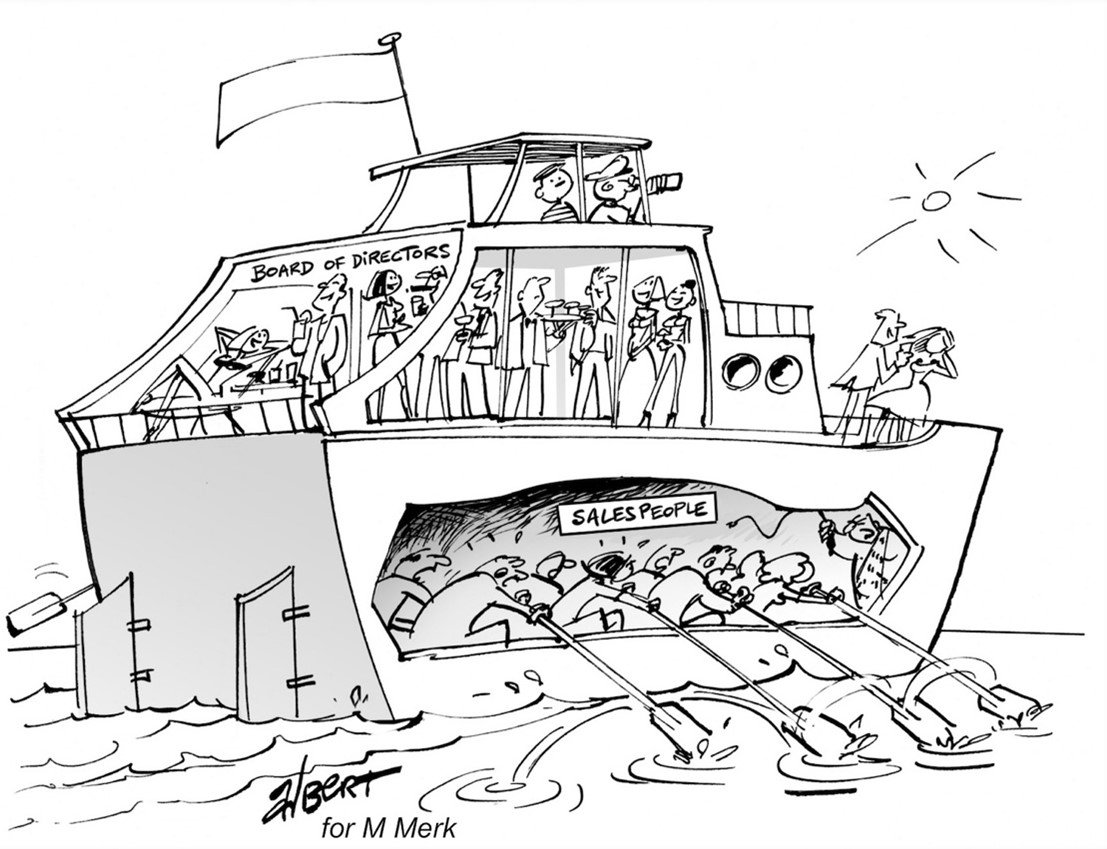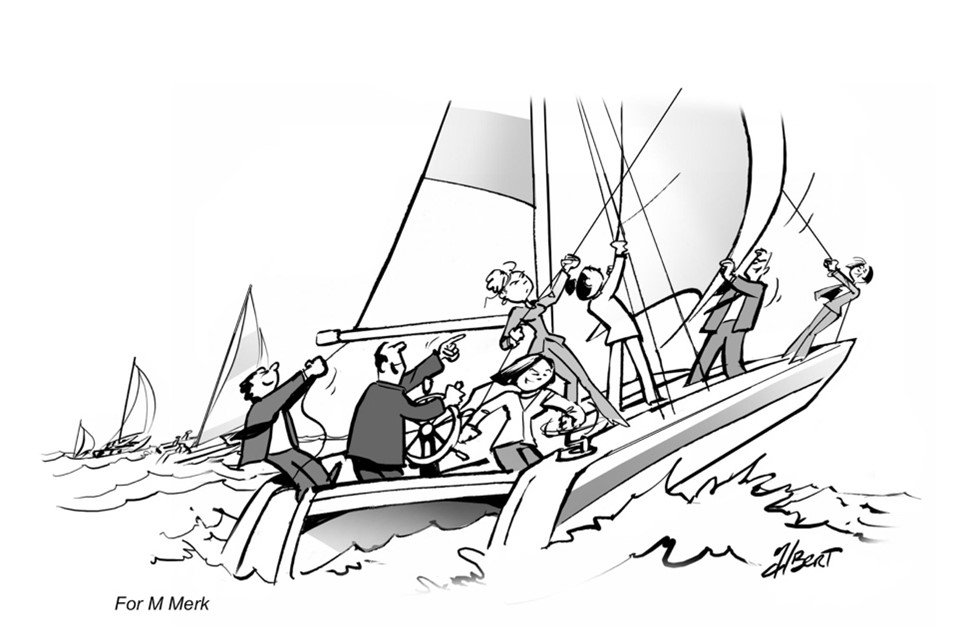Post-Covid Leadership:
Less vision – more relationship
Change your glasses!
Before the crisis, leaders liked to look far, make long-term projections, plan for their future, set budgets for 5 years. Often away from their employees they made decisions while the teams rowed to move the ship forward.

These managerial practices driven by a long-term vision no longer work. Too much uncertainty surrounds us. Too many questions are in the air. Desperately business managers are looking for signals that tell them where our future is going, how our economy will evolve, how consumption will be able to do, how the unemployment curve will grow. But no one can currently know the fate of our economy – not even the greatest experts.
So, instead of making projections in the void, wants to look better and strengthen relationships with those who look at you with concern – your employees and partners in your ecosystem. The only post-Covid managerial remedy is to know how to reassure them, gather them, comfort them and reorganize them.
After a period of hibernation, the majority of employees dare to leave their cocoon, their home office of the 2 less past, often far from their usual place of work and their colleagues. For many, the time has come to find a new reality at work. This reality is filled with rules, restrictions, reinforcements, reorganizations and even ruptures for some. And that’s just the beginning.
Companies and their teams never needed leadership with strong relationship skills. Instead of having leaders looking far away, we need leaders who know how to look closely.
This quality starts with them, their intra-personal qualities before projecting themselves towards others by showing interpersonal qualities.
In my own career in management positions of international companies I have faced many crisis situations: mergers, takeovers of French companies by Chinese giants, massive closures of logistics power plants, the economic crisis in 2008 within an American company. Whatever the crisis, I realized how much the teams were calling for local leadership, much more than in good times. Relational leadership seems to me to be the only cure that works. The highest quality of leaders in times of crisis must be the mastery of Relational Intelligence. Relational intelligence is an exceptional sensitivity to detect, analyze and adapt your leadership to every new situation and person on your team.
Executives who manage with Relational Intelligence know how to transform their teams into brand ambassadors or ambassadors for their company.
During and after the crisis you must have developed teams that follow you, support in solidarity in order to prepare with you your company for a new post-crisis growth. The best leaders take advantage when times are tough to develop their biggest fans who admire them, imitate them, observe them, wear them.
This work is fundamental to stabilizing and preparing the ground before we can have a long-term vision again.
After leading and coordinating teams during times of crisis and transformation I have conducted research over the past 10 years to better understand the Skills of Relational Intelligence of Leaders who are so valuable in times of crisis. I interviewed hundreds of top executives from about 50 different companies to better identify the relational qualities that make a difference.
At the heart of Relational Intelligence there are 5 skills that are essential to stabilize and secure your businesses in these uncertain times:
1. Mastering Empathy
It’s the incredible ability to crack the codes of each member of your teams. This mastery is only possible if one makes the effort to perceive the emotions of others by taking their perspective. Why is this quality so important in times of crisis? Because you have to feel the anxieties, the needs, the desires to implement the short-term actions. Now is the time to get everyone on board. And you probably have to part with those who don’t want to get caught up in spite of your relationship efforts. Because they will represent a considerable brake when you are going to want to hoist the sails again and accelerate.
2. Developing Confidence
When the future is uncertain, being able to trust a company through a great leader is essential.
Former IBM President Thomas J. Watson said, “The hardest part of the power of trust is that it is difficult to build and so easy to destroy.” I would add to this observation that trust is built when actions during turbulent times are consistent with the promises made in prosperous times. The gap between words and actions must be almost non-existent. As soon as a gap opens, confidence turns into frustration or even disappointment.
3. Sharing your Passion
It’s up to you leaders to find positive every day to raise the morals of your teams. A passion doesn’t destroy itself so quickly. If you’re the creator of your business, inherit your business, or have been running your company for several years- there’s something that drives you. The product, the sector, the innovation, the creation, the service, the profits, the people around you. Let it be known more than ever, pass the torch, even if it seems hard in difficult times.
4. Develop Authentic Pride
Pride has many faces: destructive with pride by dominance or builders by accomplishment. The latter is so powerful if you establish strong values, if you make them visible, if you live them, if you embody them, if you inspire. These values serve as a basis for identification for your teams, partners and customers. In addition to values, we must succeed in creating moments of victory through a sense of competitiveness. It’s a desire to win, not to give up, to terminate when times are tough. And you, the leaders, are the first to show this incredible quality of resilience thanks to your desire to come out strengthened after the crisis.
5. Inciting Gratitude
The great leaders are not only able to say thank you but they inspire the thank you. It’s when they make their teams happy through altruistic actions, when they put themselves in the service of their teams, when they can make their lives better—especially when it hurts. Gratitude has no borders, only benefits.
Special tip: The leaders who practice relational leadership will be the winners of the crisis as they manage to keep their teams performing well, in solidarity and forward-looking.
They will win because they have transformed their teams into ambassadors for your company, your leadership, your person. This is how you will take them all on your boat very agile, fast, winning because you have demonstrated Relational Intelligence when the vision no longer carried you.

Dr. Michaela Merk – Expert and keynote speaker in luxury and brand management



